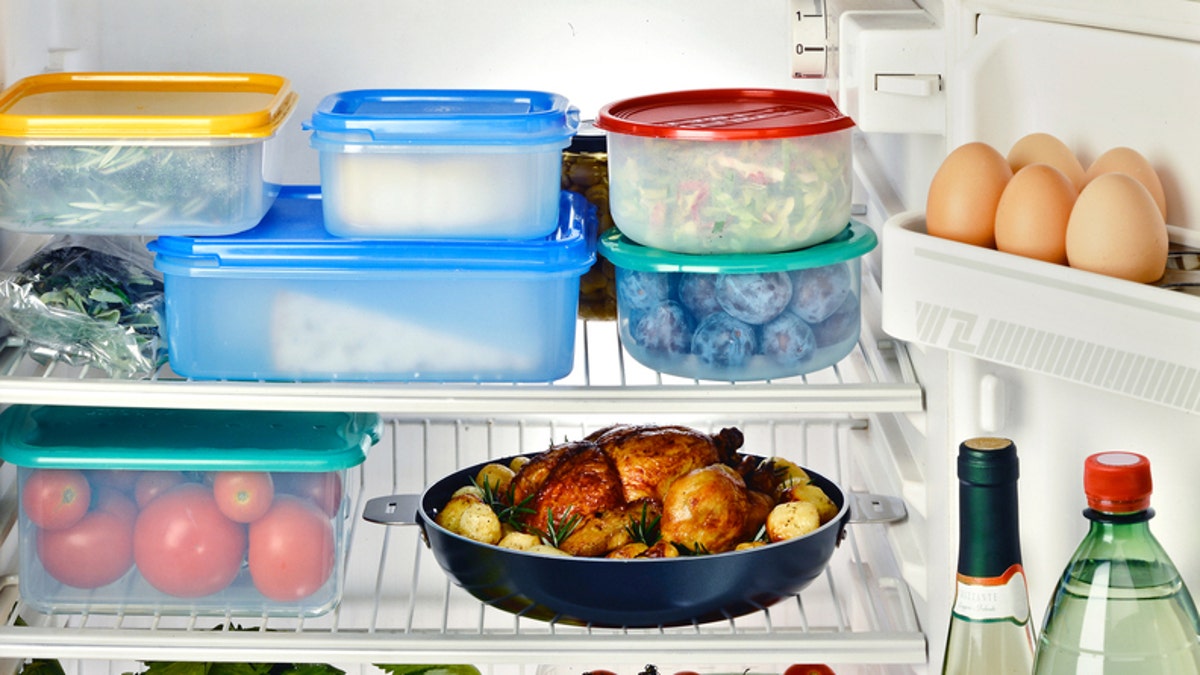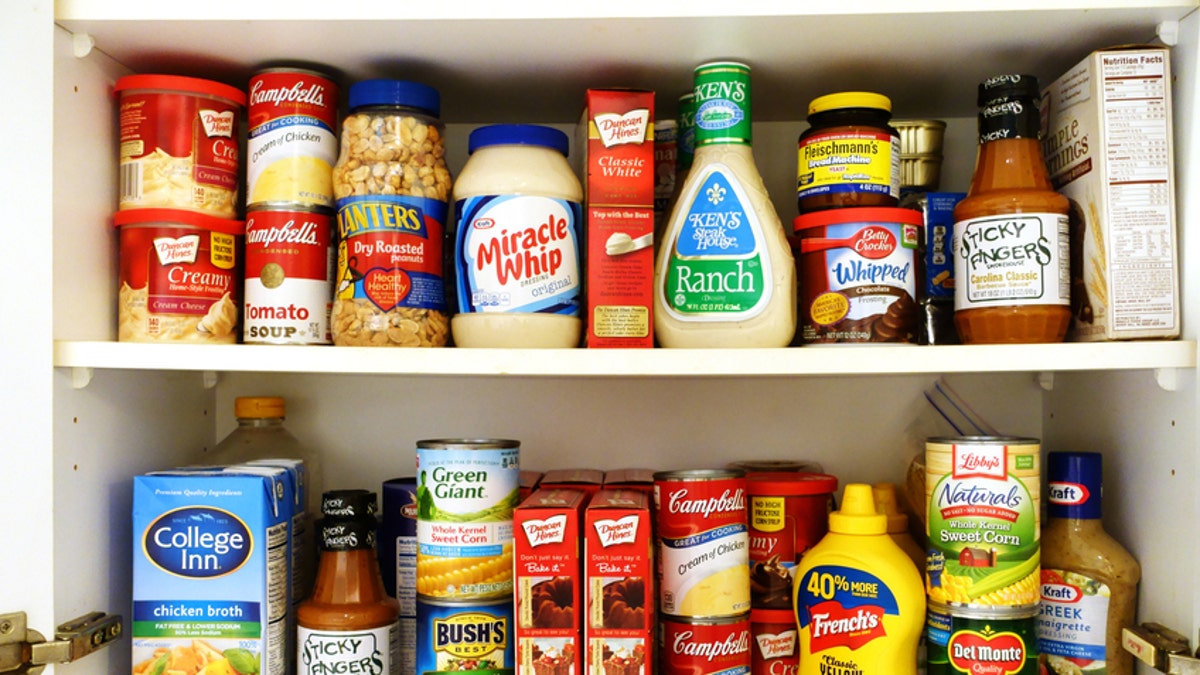
Do all foods need to be refrigerated? (antoniotruzzi)
It's generally considered a good idea to refrigerate—say—raw pork, and fresh vegetables, and dairy products. Those are kitchen all-stars.
But what about the supporting players—the condiments, the sandwich fixins, the baking supplies? Check out this list of items you could refrigerate, items you should refrigerate, and items that would also be very happy in the freezer.

West Palm Beach, USA - October 9, 2015: Image of two kitchen pantry shelves filled with groceries. Included among the groceries are canned soups, tomatoes, beans and corn, salad dressings, barbecue sauce, peanuts, mustard, cake mixes, chicken broth, and a variety of other cooking and baking ingredients. Many popular brand names are represented, such as Campbells, Green Giant, Del Monte, Bush's, Miracle Whip, Betty Crocker, Libbys, Duncan Hines and Kraft (NoDerog)
Foods you don't technically have to refrigerate, but why not?
Most condiments exist in a gray area relative to refrigeration: they've been fermented during the production process (think Worcestershire sauce) or are otherwise acidic (yellow mustard), so they're pretty capable of just preserving themselves. Yet most manufacturers recommend refrigerating these once you open them, because while they might not go bad at room temperature, they'll lose more flavor and freshness over time when stored that way.
More From epicurious
This category includes the aforementioned Worcestershire sauce and mustard as well as horseradish, soy sauce, fish sauce, and ketchup. You also don't technically have to refrigerate prepared mayonnaise, but...come on.
Foods you really should refrigerate (aside from the obvious)
This category entire comprises nuts and nut byproducts, whose highly fragile fats will go rancid if they're left at room temperature for too long. You'll want to put the chill on flax seeds; nuts like pecans and walnuts if you think they'd otherwise sit in the cupboard for a long time; nut oils, including walnut oil and Asian sesame oil; and natural nut butters, including tahini.
Most conventional peanut butters could survive the apocalypse, but natural peanuts butters should go in the fridge once they've been opened; they'll stay fresher, and the cool temps will also help keep their oil from separating.
The incredible, edible egg
Sort of a category of their own, because you don't really need to refrigerate intact, uncooked eggs...unless you happen to live in the United States, in which case you actually do. When they're laid, eggs come coated in a cuticle—a thin membrane that keeps bacteria out—so in their natural state, they're fine left on the counter; it would indeed be a weird quirk of evolution for an animal to lay an egg that needed to be kept on ice. But owing to fears of salmonella, the U.S. Department of Agriculture requires that eggs laid here be washed after laying, which removes the cuticle and makes the eggs more susceptible to spoilage—thus necessitating their stay in the refrigerator.
In Europe, egg-laying hens get a salmonella vaccine, and their unwashed eggs don't need to be refrigerated; both American and European methods, reports NPR, achieve basically the same result.
Some recipes call for eggs to be at room temperature, and it's fine to leave them on the counter for a while for them to get there; you can also bring them to room temp faster by placing them in a bowl of warm water.
Foods you should freeze
In the freezer, dried yeast will keep forever instead of turning mysteriously ineffective the next time you decide to bake bread. The freezer is also a great place to store flours, particularly whole-grain flours, since their bran has oil that will go rancid if they're left at room temperature for too long. Just make sure they're well-sealed in a plastic bag so they don't pick up any odors.
Nuts and flax do great in the freezer, too, if they're cluttering up your fridge; their high fat content ensures they won't freeze too firmly, so they'll be available for snacking at a moment's notice.
